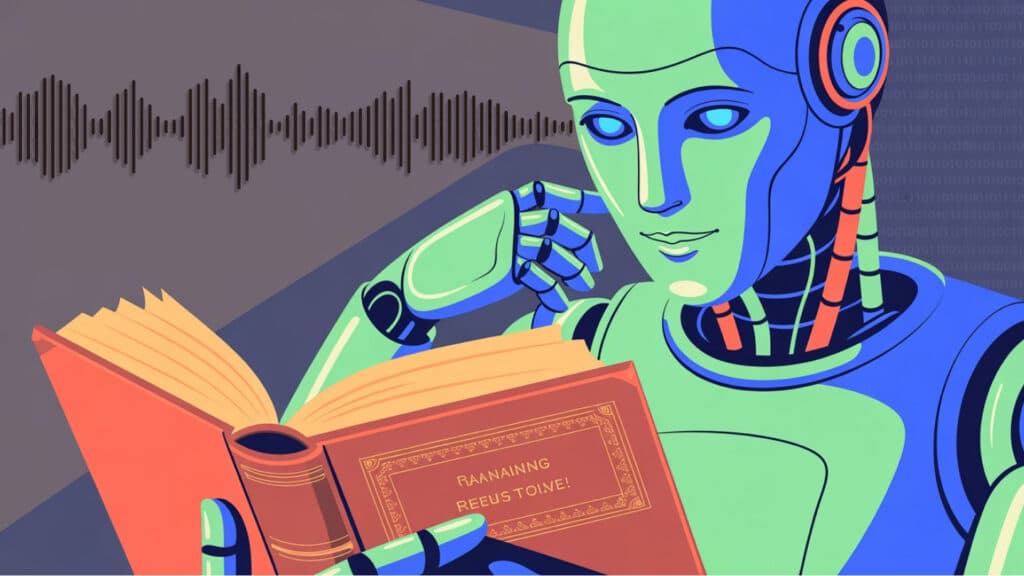AI-narrated audiobooks: Can a machine ever truly tell a story?

Machines are increasingly encroaching on our books and voices, warns Adam Verner, a veteran audiobook narrator who has voiced more than 800 titles for major publishers and independent authors. His body of work spans literary heavyweights like Marilynne Robinson and Joyce Carol Oates, as well as pop-culture staples such as George R. R. Martin, Danielle Steel, Tim Ferriss, and even Disney’s Finding Nemo.
A childhood shaped by storytelling
Verner’s connection to storytelling began early. His parents separated when he was just a toddler, and his father moved to California.
A performer and radio DJ, his dad was quick to embrace early home-studio technology. He would record himself reading books onto cassette tapes and mail them to his son. Verner remembers crouching over his Fisher Price tape player, captivated by his father’s voice. Even through the distortion of cheap plastic speakers and magnetic tape, the sound carried profound meaning: the fusion of a human presence and a story created something deeply transformative.
The rise of synthetic voices
For years, signs of automation have loomed over the audiobook world. Amazon’s Kindle once offered a robotic «read-aloud» option, and small companies experimented with synthetic voices, although none gained significant traction.
But in late 2023, the landscape shifted. Audible, Amazon’s audiobook platform, began rolling out its own computer-generated narrators, branded as «Virtual Voices.» Independent authors could now produce entire audiobooks with a single click, a development some quickly labeled «AI audiobooks.»
To Verner, this is more than just a technological shift; it’s a human one. Storytelling has been central to our species since the first communities gathered around firelight. Author Jonathan Gottschall has even called us homo fictus, storytelling animals. Audiobook narration, Verner argues, is one of the closest modern equivalents to that ancient act: one voice shaping a tale for another.
What machines can’t give us?
Replacing that with a machine, he believes, strips away something essential. Storytelling isn’t mechanical — it requires emotion, interpretation and intention.
A narrator doesn’t just read words; they infuse them with perspective and meaning. Could an algorithm convey the tenderness of a father’s voice to a son? Could it capture the intent behind a line, or transform the listener through its delivery? Machines lack bodies, memories, or the lived experiences that stories grow from.
Even the origin of Frankenstein, Mary Shelley’s 19-year-old imagination responding to the anxieties of her age, reminds us that stories are born of human context. While programmers may claim today’s AI systems border on consciousness, Verner insists they cannot imagine, remember, fear, or change from the stories they tell. At best, algorithms generate statistical variations on patterns. They have no «self» and no need to say anything.
Ultimately, he argues, only people can carry the weight of storytelling. Narrators feel a responsibility — to authors, to listeners, to the art itself — that machines cannot. If we surrender that role to synthetic voices, bit by bit, we risk losing not just jobs, but part of what makes us human: our stories.

